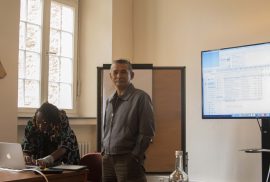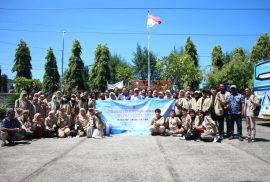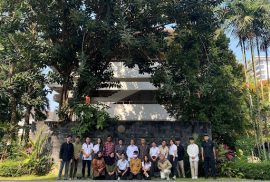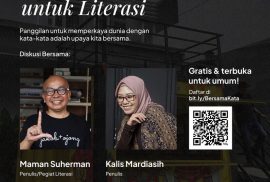Workshop by Prof. Dr. Pujo Semedi Hargo Yuwono, M.A. at the University of Cologne: Forest Conservation in Historical and Economic Contexts
HEADLINESNews ReleaseSDGs 11: Sustainable cities and communitiesSDGs 13: Climate Action Thursday, 27 June 2024
Cologne, Germany – Prof. Dr. Pujo Semedi Hargo Yuwono, M.A., a Professor of Anthropology at the Faculty of Cultural Sciences, Gadjah Mada University (UGM), recently gave a presentation at a workshop titled “Realising nature(s) with protected areas in Namibia and Germany – pasts, presents, and futures” held at the University of Cologne on June 20-21, 2024. The workshop was attended by the academic community of the University of Cologne.
In his presentation, Prof. Dr. Pujo Semedi discussed the success of German forests in maintaining environmental sustainability amidst capitalistic pressures and industrial development. German forests, covering 11.4 million hectares or 32.6% of the country’s area, serve as an example of fortunate forests due to their strict protection and resistance to arbitrary land conversion. This is in stark contrast to the condition of forests in many parts of the world that have suffered severe damage due to deforestation.
Prof. Dr. Pujo Semedi explained that in the 18th century, German forests experienced significant degradation. However, this period of difficulty actually spurred increased public awareness, formed new social relationships, and prompted the establishment of institutions focused on forest conservation. The current status of German forests is the result of a long history of environmental and social relationships deeply rooted in respect for nature, which has become part of German culture.
Additionally, Prof. Dr. Pujo Semedi emphasized that the sustainability of German forests is supported by beneficial capitalistic relationships related to industrialization in the manufacturing and agricultural sectors. He further discussed how capitalized German forests can benefit from the current socio-political tensions within German society and how this understanding can help explain why forests in other countries exposed to and placed in capitalistic relationships are not as fortunate as German forests.
Prof. Dr. Pujo Semedi’s presentation provided deep insights into how history, culture, and economy can play a role in forest conservation. The discussion sparked by this presentation is expected to inspire forest conservation efforts in other countries facing similar challenges. In conclusion, a holistic approach involving environmental awareness, social relationships, and economic benefits can be key to preserving forests worldwide.
Author: Afif Naufal Widiadi






